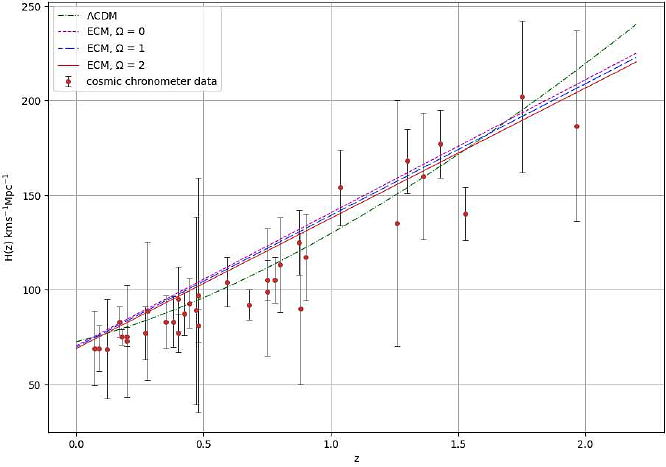Evolution of Hubble parameter from Pantheon+ data and comparison of cosmological models using cosmic chronometers

Evolution of Hubble parameter from Pantheon+ data and comparison of cosmological models using cosmic chronometers
Ardra Edathandel Sasi, Moncy Vilavinal John
AbstractThe evolution of the Hubble parameter $H(z)$ with redshift $z$ is estimated from the Pantheon+ data of Type Ia supernovae, for the $\Lambda$CDM model and the three special cases of the eternal coasting (EC) cosmological model with three different spatial geometries. The scatter associated with $H(z)$ is seen to grow markedly with redshift. This behaviour, which is deduced directly from the SNe Hubble diagram, raises the question of whether the universe is undergoing a stochastic expansion, which scenario can offer an explanation for the Hubble tension in cosmology. From the estimated $H(z)$ values, the present value of the Hubble parameter $H_0$ is evaluated for each of these models through regression, and the scatter using the Monte Carlo method. Bayesian comparison between these models is carried out using the data of 35 cosmic chronometers (CC). The comparative study favours the $\Lambda$CDM model, with some strong evidence. However, exclusion of four outlier CC data points with small errorbars leads to large reduction in the Bayes factor value. The unusually large value of Bayes factor obtained while using the full set of CC data raises some concerns about its tension with other data, such as that of the SNe Ia. While using the remaining 31 CC data points, it is observed that the resulting Bayes factor still favours the $\Lambda$CDM model, but with a much smaller value of the Bayes factor. When EC models are compared among themselves, the $\Omega = 2$ model has strong evidence than the $\Omega = 1$ (also known as $R_h = ct$) and the $\Omega = 0$ (Milne-type) models.